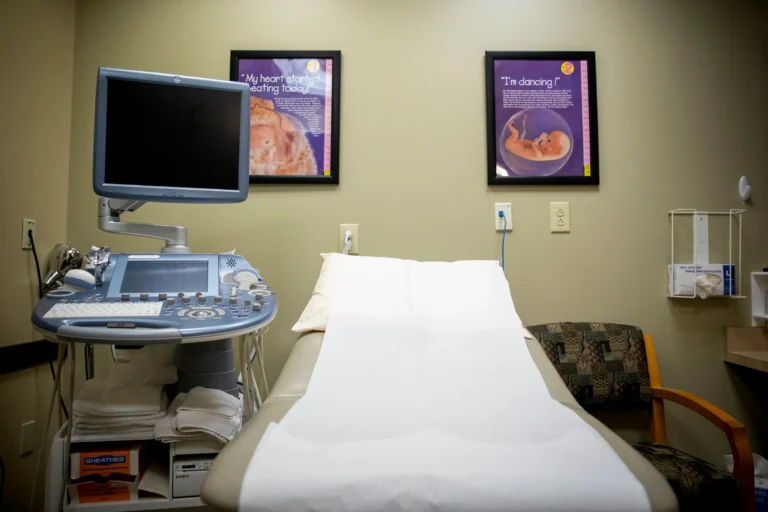Pregnancy is a transformative period in a woman’s life, filled with excitement, anticipation, and many questions. Ensuring a healthy pregnancy involves accessing the right resources, understanding the changes occurring in the body, and making informed decisions about health and well-being. We aim to provide expectant mothers with essential information on pregnancy resources, more about Pregnancy Resource Center, and covering prenatal care, nutrition, emotional support, and more.
Empowering Expectant Mothers: Your Comprehensive Guide to Pregnancy Resources
1. Understanding Prenatal Care
Prenatal care is the cornerstone of a healthy pregnancy. It involves regular medical check-ups and screenings to monitor the fetus’s development and the mother’s health. It begins with an initial visit to a healthcare provider, usually around 8-12 weeks of pregnancy, where a comprehensive medical history is taken and baseline tests are conducted.
These tests typically include blood work, urine analysis, and an ultrasound to confirm the pregnancy and establish a due date. Regular prenatal visits help detect potential complications early, ensuring timely interventions.
Subsequent visits, typically scheduled monthly until the 28th week, bi-weekly until the 36th week, and weekly after that, allow for ongoing monitoring. During these visits, healthcare providers track the baby’s growth, check the mother’s weight and blood pressure, and discuss any symptoms or concerns.
Prenatal care also includes screenings for gestational diabetes, preeclampsia, and other conditions that could affect pregnancy outcomes. By adhering to a regular prenatal care schedule, expectant mothers can significantly increase the likelihood of a healthy pregnancy and delivery.

2. Nutrition and Diet During Pregnancy
Proper nutrition is crucial during pregnancy as it supports the health of both mother and baby. A balanced diet rich in essential nutrients ensures optimal fetal growth and development. Critical components of a pregnancy diet include folic acid, iron, calcium, protein, and omega-3 fatty acids.
Folic acid in leafy greens, beans, and fortified cereals helps prevent neural tube defects. Iron, necessary for producing hemoglobin, can be sourced from lean meats, beans, and spinach, while calcium from dairy products and leafy greens supports bone development.
Pregnant women should also consume adequate protein from sources like eggs, nuts, and legumes to support fetal tissue growth. Omega-3 fatty acids, particularly DHA, found in fish like salmon and fortified foods, are vital for brain development.
Additionally, maintaining proper hydration by drinking plenty of water is essential. Pregnant women should avoid certain foods, such as raw fish, unpasteurized dairy, and deli meats, which can pose risks of infections. A well-rounded diet, tailored to the needs of pregnancy, promotes the health and well-being of both mother and child.
3. Emotional and Mental Health Support
Pregnancy can bring about a range of emotions, from joy and excitement to anxiety and stress. Hormonal changes, physical discomforts, and the anticipation of becoming a parent can contribute to emotional ups and downs.
Therefore, emotional and mental health support is integral to prenatal care. Expectant mothers should prioritize their mental well-being by engaging in activities that promote relaxation and reduce stress, such as prenatal yoga, meditation, and regular physical exercise, which can boost mood and energy levels.
Seeking support from loved ones, joining prenatal support groups, or speaking with a mental health professional can also provide significant benefits. It’s important to recognize signs of prenatal depression and anxiety, such as persistent sadness, irritability, or difficulty concentrating, and seek help promptly.
Addressing mental health concerns improves the mother’s well-being and positively impacts fetal development. By fostering a supportive environment and utilizing available mental health resources, expectant mothers can navigate the emotional complexities of pregnancy more effectively.
4. Exercise and Physical Activity
Regular physical activity is beneficial during pregnancy, contributing to overall health, reducing the risk of gestational diabetes, and promoting better sleep and mood. However, pregnant women must choose appropriate exercises and adjust their routines as their bodies change. Low-impact activities such as walking, swimming, and prenatal yoga are excellent options that provide cardiovascular benefits without placing undue strain on the body.
Strength training with light weights and stretching exercises can also be incorporated to maintain muscle tone and flexibility. It’s crucial to avoid high-impact sports, heavy lifting, and exercises that carry a risk of falling or abdominal trauma. Pregnant women should listen to their bodies and avoid overexertion, staying within a comfortable intensity level.
Consulting with a healthcare provider before starting or continuing an exercise routine is advisable to ensure safety and appropriateness. By maintaining a regular, moderate exercise regimen, expectant mothers can support their physical health and prepare their bodies for labor and delivery.
Pregnancy is a profound journey that encompasses physical, emotional, and logistical preparations. By utilizing the vast resources available, expectant mothers can ensure a healthier and more fulfilling experience. From understanding prenatal care and proper nutrition to seeking emotional support and preparing for the arrival of a newborn, each aspect plays a crucial role in promoting the well-being of both mother and baby.
Accessing community resources and engaging in financial planning further support this journey, helping to mitigate stress and provide stability. As new mothers transition into parenthood, continued education and community support are invaluable in navigating the challenges and joys of raising a child. By leveraging these resources, expectant mothers can approach pregnancy and parenthood with confidence, knowledge, and a robust support system.

